They might be small and they might look like poppy seeds, but chia seeds are not dubbed the healthiest food on Earth for nothing. Also known as Salvia hispanica, this plant is a member of the mint family and it produces tiny black seeds. Chia seeds are loaded with vitamins and nutrients that promote the good health of our body and brain, without packing too many calories. A favorite among weight watchers, chia seeds are versatile when it comes to cooking and don’t require any special attention. They can be eaten raw or soaked in coconut water, almond milk or regular milk. They’re a nice addition to any pudding, and they add extra nutrients to salads. Besides being easy to incorporate in meal plans, they’re also beneficial for an impressively large number of things.
1. Rich in omega-3s, they can reduce cholesterol
One of the most important benefits of chia seeds is that they comprise the much sought after polyunsaturated fats. Their high concentration of lipids makes them hold the title of the richest source of fatty acids among plants. A great ally for vegetarians, vegans and raw enthusiasts out there, this superfood will fight off inflammation, boost brain performance and decrease high levels of cholesterol.
2. Impressive amounts of nutrients for just a few calories
Chia seeds used to be highly prized by Mayans and Aztecs. They didn’t need science to back up their belief that these tiny seeds are full of goodies. But nowadays, we know exactly what is in an ounce (or 28 grams) of chia seeds: 4 grams of protein, 11 grams of fiber, 9 grams of fat and 30% of the recommended daily intake of magnesium. The list of nutrients doesn’t stop there. Chia seeds also contain Vitamin B1, B2 and B3, Potassium and Zinc. The best part is yet to come: an ounce of these tiny black seeds has only 135 calories. And since they are whole grains, they are organic, non-GMO and they don’t contain any gluten.
3. Plenty of antioxidants to fight off cancer
Said to rival blueberries in their amounts of antioxidants, chia seeds are better than any other food supplement on the market. The antioxidants in the seeds prevent the sensitive fats from turning rancid. The top benefit of antioxidants is that they combat free radicals that are the main cause of premature ageing and developing cancer. Antioxidants help molecules in cells and contribute to our overall body strength.
4. Excellent source of fiber and low-carb
Out of the 12 grams of carbohydrates loaded in an ounce of chia seeds, 11 grams are fiber. The best thing about fiber is that it doesn’t make your blood sugar levels spike, it doesn’t need insulin, and some argue that it shouldn’t actually be called a carb. If you ever wondered why chia seeds are able to absorb so much water (tenfold their weight) the answer is the fiber. What else does fiber do? It can help make you feel full for longer and it supports the good bacteria in your intestine.
5. The fiber and high quality protein helps with weight loss
The theory behind the statement that chia seeds are a powerful adjuvant in weight loss is that they comprise a lot of fiber, which absorbs water and expands in your stomach. As a result, you’re left feeling full for longer and your cravings in between meals are diminished. At the same time, the high quality protein helps with curbing your appetite. Chia seeds might work wonders on your waist line, but their benefits go beyond shedding a few pounds. They help our bodies become stronger and sharpen cognitive functions.
6. Chia seeds lower the chances of developing a heart disease
Chia seeds are excellent for prevention. Their singular structure comprises more omega-3s than salmon, great amounts of fiber and only high quality proteins. These three components are the key active ingredients that promote metabolic health. Chia seeds have been showed to lower triglycerides, help with inflammation and reduce belly fat. Chia seeds could have a significant impact on lowering the chances of developing type 2 diabetes and heart diseases.
7. The right nutrients for strong, healthy bones
High in protein, calcium, magnesium and phosphorus, chia seeds do a great job at maintaining healthy bones. Packing as much as 18% of the recommended daily intake of calcium in one ounce, chia seeds could prevent osteoporosis in women. For those who are not keen on dairy or have adopted a vegan diet, chia seeds are an excellent replacement for calcium, being more resourceful than most dairy products.
8. Type 2 diabetes adjuvant
A study involving type 2 diabetes patients showed that chia seeds can significantly improve their health markers. The study comprised 20 patients who received wheat bran or chia seeds over the course of three months. At the end of the study, the blood tests spoke volumes about the benefits of chia seeds. Patients who consumed 37 grams of the little black seeds for twelve weeks had their blood pressure decreased, followed by a reduction in inflammatory markers and risk factors.
9. Energy boosting properties can rival energy drinks
Chia seeds are great for their satiating effects, making you feel satisfied and full in between breakfast and lunch. But the winning combination of fiber, protein, antioxidants and omega-3s has other benefits. Chia seeds can work as energy boosters for athletes. At the same time, they reduce the carb load while they increase the nutrients intake.
10. Chia seeds can replace eggs
The latest trend proclaiming chia seeds to be one the biggest superfoods of all times seems to be true, especially when we think that these black seeds can replace eggs. To the thrill of raw vegans all over the world, chia seeds can be used in some recipes that ask for eggs. The unique properties of chia seeds makes them swell up and transform into a gel when they are mixed with liquids. Combining one tablespoon of chia seeds with 3 tablespoons of water and allowing them to soak for 15 to 20 minutes will yield a thick, gel-like paste. Excellent for people who are trying to lower their cholesterol levels, chia seeds can be eaten in their raw form, sprinkled on yogurts, cereals and vegetables, or soaked in juices and water.




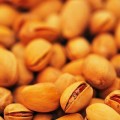
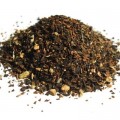

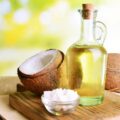
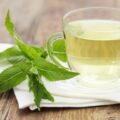




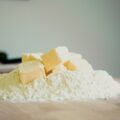

Leave a Reply